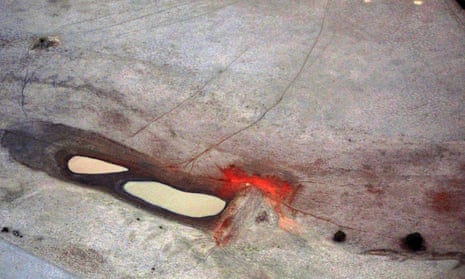Australia has been been asked to defend the credibility of its Direct Action climate change policy at the UN after several countries submitted questions to the Abbott government querying how the policy would reduce carbon emissions.
The US, China and Brazil – all large emitters – have joined other countries in challenging Australia on its emissions reduction target and commitment to renewables.
The questions were submitted to the UN framework convention on climate change. Australia has not yet submitted answers to the questions but is expected to do so by the end of May.
The paper also questioned whether Direct Action was enough to make up for the Coalition’s decision to axe the carbon price and whether Australia would be able to meet its commitment of cutting emissions by 5% below 2000 levels by 2020.
Brazil thinks that target does not aim high enough. “Considering the low level of ambition presented until now, as well as the historical data, does Australia intend to change its unconditional target in order to increase its level of ambition?” it asked.
The US has pledged to cut its emissions by up to 28% of 2005 levels by 2025.
Australia has indicated it could increase targets further but only if its commitment is matched by developing countries such as India and China, arguing that Australia will be economically disadvantaged if it is forced to cut its emissions when competitors are not.
“Australia further indicated that the 15% and 25% conditional targets are based on the level of international action, especially from advanced economies,” China said in its submission. “This ambition level is far below the requirement that Australia set out for advanced economies. Please clarify the fairness of such requirements.”
The European Union also asked Australia about its ability to meet more ambitious targets of a 15% or 20% cut in emissions.
Experts warn diplomatic pressure on Australia will continue to build before a major climate change forum in Paris at the end of the year.
The chief executive of the Climate Institute, John Connor, said: “The government’s climate ambition and policies are already being questioned, with a clear indication that our major trading partners do not think that we have a credible policy or pathway for achieving any significant pollution target, or that we’re playing our fair share in the global game.
“It is clear from the questions being asked by China, Brazil, the US and the EU that they see Australia’s adoption of the minimum 5% reduction 2020 target as inadequate. The questions being posed of Australia indicate a high level of scepticism on the effectiveness of the government pollution policies.”
More questions have been asked of Australia than of any other country, including the US.
Both Labor and the Greens have rounded on the government over the questions posed by other countries on Australia’s commitment to help ensure the world does not warm beyond 2C, compared with pre-industrial times.
“All the scientists warn of catastrophic consequences for scenarios above two degrees, yet Tony Abbott seems to have casually decided he knows better and dropped that long-held bipartisan commitment,” said Mark Butler, Labor’s environment spokesman.
“Today’s reports are likely to be just the beginning of our partners’ and neighbours’ concerns about Australia’s climate action while Tony Abbott continues his determination to do nothing.”
The Greens leader, Christine Milne, said it was no surprise the rest of the world was “appalled” by the Australian government’s stance on climate change action.
“Australia may stand alone and humiliated, but even worse is that Tony Abbott’s global warming policy protects the profits of the big polluters now at the expense of a safe climate for our children and grandchildren,” she said.
“It is intergenerational theft on an obscene scale.”

Comments (…)
Sign in or create your Guardian account to join the discussion